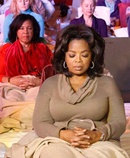
|
|
Joining the universal Peace Corps: transforming the world from within, Part 1 As I sat to research this blogpost, I remembered it was the birthday of my father, who passed away two years ago. I wanted to observe this day by reading one of his sermons. As his life was devoted to peace-making, I felt a sense of continuity with him in writing the topic of this post. I randomly pulled out a sermon of his, “The Grace of Beginning Again and Again.” In it, my dad spoke of his high regard for Martin Buber: “In the writings of this Jewish thinker there radiates such sensitivity of spirit and depth of understanding, such beauty of soul and strength of purpose, such integrity and realism. . . .” Throughout his life, my father said, Buber urged people to realize their ever-present potential for inner transformation and renewal. In Buber’s words, the “grace of beginning again and ever again.” I realized how relevant this was for my post—relevant to the question many ask today: CAN we possibly transform this world of ours, on a large scale, for the better? Buber’s life was devoted to urging others to realize that this possibility is there each and every moment. But how? When we want illumination to significant questions, there are three sources we can turn to for knowledge: wisdom of the sages, both ancient and contemporary; modern science; and our own experience. Maharishi calls these the “Three Eurekas.” Let’s start with the wisdom from the sages. Rabbi Abraham Kook, another great 20th century Jewish leader, addresses our question of how we can transform our world and underscores a point made in my prior post on peace: the individual has the potential for a profoundly harmonious effect on the whole. Addressing the experience of higher states of consciousness, Rabbi Kook said, “It turns out that the unity achieved in our souls serves to unite the world as a whole. And all those noble effects of the riches of the souls which everyone who is wise of heart, of a sensitive and holy nature, can feel within himself. . . . because of the manifestation of the mystical discovery of inner unity—these spread and release light and vitality and become a source of blessing and an ornament of peace to the world and its fullness.” To get a perspective from another culture, we travel back in time to Lao Tzu of ancient China: From ancient times till now This principle—that an enlightened individual automatically affects powerful, positive change in the larger community—is articulated in yet another time and culture. The 14th century anonymous author of the Christian classic, The Cloud of Unknowing, says that even a momentary experience of the transcendent, within the silence of pure consciousness [“pure contemplation”], has a more powerful impact of good upon the world than anything done in the field of activity: “The whole of mankind is wonderfully helped by what you are doing, in ways you do not understand…. It is more profitable to your friends, natural and spiritual, dead or alive.” “It is more powerful, I can assure you, than anything else.” Yet, it is “the lightest sort of work there is.” In my next post, I’ll explain how the field of consciousness, easily experienced by every individual, is at the fundamental level of all life, all people, and the entire manifest world. And how, when experienced, it’s universal qualities of peace and coherence are enlivened throughout everything and everyone. We’ll understand this from the perspectives of both hard science and personal experiences, and look at research on the collective practice of Transcendental Meditation and how we can have “a powerful impact of good upon the world.” References ------------------ About the Author © Copyright 2015 Global Mother Divine Organization
|
|

